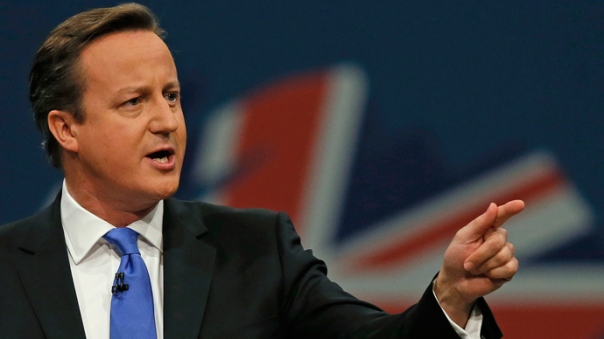British PM warns ISIS planning to attack England. But pursues new ties with Radicals in Iran. Why?
In Uncategorized on June 19, 2014 at 4:02 pm
How serious is the ISIS threat? At least one Western leader is raising an alarm.
“The crisis in Iraq must not be dismissed as ‘nothing to do with us’ as the same Islamic jihadists are also planning to attack the UK, David Cameron has warned,” reports the UK Guardian.
“The prime minister said the terrorist insurgence in Iraq, as well as related problems in Somalia, Nigeria and Mali, would ‘come back and hit us at home’ if the UK did not help stabilise these regimes.”
The Prime Minister is right to be concerned, and hopefully will enact policies to deal decisively with the threat of Radical Islam.
However, I’m deeply concerned that Cameron is seriously pursuing reestablishing diplomatic ties with Iran, including reopening the British embassy in Tehran.
This is a serious mistake.
- Iran’s brutal regime is the epicenter of Radical Islam of the Shia variety.
- The Ayatollah Khamenei presides over the world’s most aggressive state sponsor of terrorism.
- Iran defies numerous U.N. resolutions as they illegally develop their nuclear program and pursue nuclear weapons.
- Iran’s leaders have repeatedly called for the destruction of Israel.
Why in the world would Cameron want to establish ties with this evil regime?
Developing….
Excerpts from the story:
- Speaking in the House of Commons, he said the “hard attack” of direct intervention by the west was not the only option as that could create its own problems.
- Cameron set out his argument after the Labour leader, Ed Miliband, pressed him to explain the government’s response to the turmoil during prime minister’s questions.
- “I’d disagree with those people who think this is nothing to do with us and if they want to have some sort of extreme Islamist regime in the middle of Iraq that won’t affect us – it will,” he said.
- “The people in that regime, as well as trying to take territory, are also planning to attack us here at home in the United Kingdom. So the right answer is to be long term, hard-headed, patient and intelligent with the interventions that we make, and the most important intervention of all is to make sure that these governments are fully representative of the people who live in their countries, that they close down the ungoverned space, and they remove the support for the extremists.
- “If we do that, not just in Syria, but we have to help in Iraq, in Somalia, in Nigeria, in Mali, because these problems will come back and hit us at home if we don’t.”
- Cameron said the Iraqi government needed to take a more inclusive approach to the Shia, Sunni and Kurd populations who live in the country. He also announced a £2m increase in the humanitarian aid budget for Iraq, increasing it to £5m overall.
- It comes before a meeting of the National Security Council, which the prime minister will chair, to discuss the crisis and the UK’s restoration of diplomatic ties with Iran. These have been cut for more than two years since the UK embassy in Tehran was stormed by protesters in 2011. Miliband said Labour supported the decision to reopen the embassy, but warned that the Iranian regime had shown in the past that it did not support an inclusive and democratic state in Iraq. The prime minister said this would be done with a “very clear eye and a very hard head”. http://flashtrafficblog.wordpress.com/2014/06/19/british-pm-warns-isis-planning-to-attack-england-but-pursues-new-ties-with-radicals-in-iran-why/

No comments:
Post a Comment